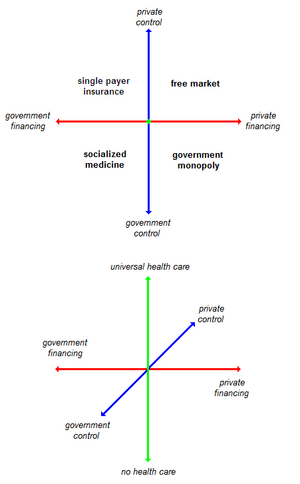
- Image via Wikipedia
While many people banter about a $ 40K cost, with $ 10K of start-up expenses, electronic health care records costs probably run about $ 120K per physician, due to productivity disruption that occurs in the first year. (It would not be unusual to see a 10% drop in patient interactions for the first year of adoption.) On the other hand, once the “kinks” have been ironed out, patient encounters probably rise by some 15%, which tends to negate these costs. (The first year loss may approach $ 100K, the second and subsequent years’ rise involves some $ 150K in additional revenue). As is clearly seen, the trick is to train the physicians and to overcome the hump in productivity loss due to adoption. Physicians need to be aware of and trained to deal with the adjustments in process workflow- or to have customized systems that cater to the workflow systems (assuming they are worthwhile) currently in practice.
We can be pretty certain of these facts, now that a little more than half of all physicians have systems already installed, according to the National Ambulatory Medical Care Survey. While 51% of all physicians are using a complete or partial EHR system, some 25% meet the criteria of a “basic system”, with 10% have a fully functional system. (It should be noted this survey did not include pathologists, radiologist, or anaesthesiologists.) The laggards (the ones who have not adopted the systems) are primarily employed (or owners of) small, independent practices. Moreover, information sharing is proving the exception, and not the rule.
Which is what makes the recent announcement concerning the development of an  information sharing system among eight prestigious institutions all the more welcome. The Cleveland Clinic, Dartmouth-Hitchcock, Denver Health, Geisinger Health System, Intermountain Healthcare, and Mayo Clinic have developed a system by which they can share data on outcomes, quality and cost in eight areas. The system, the Dartmouth Institute for Health Policy and Clinical Practice (DIHPCP) (patient census of about 10 million) shall, as its primary goal, determine best practices for use at all these facilities (and presumably across the US), as well as to drive down the per capita cost involved in delivering health care.
information sharing system among eight prestigious institutions all the more welcome. The Cleveland Clinic, Dartmouth-Hitchcock, Denver Health, Geisinger Health System, Intermountain Healthcare, and Mayo Clinic have developed a system by which they can share data on outcomes, quality and cost in eight areas. The system, the Dartmouth Institute for Health Policy and Clinical Practice (DIHPCP) (patient census of about 10 million) shall, as its primary goal, determine best practices for use at all these facilities (and presumably across the US), as well as to drive down the per capita cost involved in delivering health care.
The eight health care areas of focus to the DIHPCP include diabetes, heart failure, asthma, depression, knee replacement, bariatric surgery (weight loss), spine surgery, and obstetrics (labor and delivery). DIHPCP plans to start its efforts with total knee replacement, which incurs costs of $ 16K to $ 24K (involving some 300K operations a year). The next two practice areas of interest include heart failure and diabetes.








One thought on “EHR Adoption Rates, Effective Costs, and Potential Uses- DATA, not hopes”
Comments are closed.